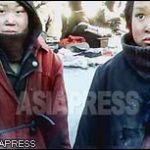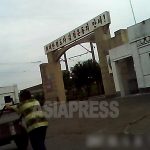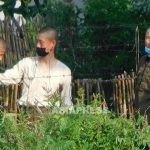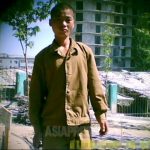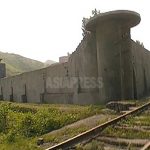
<Investigation>Current living conditions of North Koreans (1) Poor infrastructure…conditions surrounding water, electricity, heating, and restrooms
From March to May this year, ASIAPRESS spoke to three North Koreans living in the northern part of North Korea to get a sense of the latest developments. In the second installment of a series that introduces the overall social situation in North Korea, from basic infrastructure to education, healthcare, and culture, we report on the state of education in North Korea. (JEON Sung-jun / KANG Ji-won)
◆ Free education is a thing of the past, and the burden of education is intensifying
Free education is the norm in North Korea, but as state spending on education has declined sharply since the 1990s due to hardship, much of the cost of maintaining education has been covered by "non-tax burdens" on students and parents. This has resulted in students having to pay for most of their own textbooks and school supplies, a situation that has not improved since the 1990s. "B," who has a child attending school in an urban area of Ryanggang Province, shared how the issue of educating children has become a huge burden.
"To raise a child now, it costs money every month, just like paying rent. For my child, we spend 70 to 100 yuan a month... Nowadays, even if we are mobilized for work (related to school), we have to pay."
* 1 yuan is about 1,850 North Korean won (189 South Korean won). As of June 2024, one kilogram of rice in North Korea is about 7,200 North Korean won (about 910 South Korean won).
* "non-tax burdens": Officially, taxes cannot exist in North Korea, which claims to be a ‘tax-free country.’ However, due to budget constraints, taxes that are said not to be taxes, or “non-tax burdens,” are prevalent in all areas of society.
B pointed out that the government budget for education is inadequate, so parents supplement costs where necessary.
"The things we need for school are not properly provided [by the state], so schools mostly try to solve budget problems through parents. We have to buy all the materials for our children's education ourselves."
◆ Emphasis on gifted education creates new inequalities
In the past, North Korean students who graduated from high school had to be recommended by their school to take the university entrance exam. Under this system, university enrollment was influenced not only by family background, but also by parental status and economic conditions. As a result, bribery was widely practiced to obtain recommendations, which led to various negative effects on society.
In 2022, the Kim Jong-un regime emphasized gifted education as part of its efforts to encourage students to go to university. Accordingly, it implemented a policy that gave all soon-to-be high school graduates the right to take the university entrance exam and allowed anyone to go to university based on their grades.
Commenting on these recent developments, the reporting partner told ASIAPRESS:
"With the emphasis on gifted education, it is now possible for everyone to go to university regardless of their background. However, the people who benefit from this are those in power who can afford to provide educational support for their children, such as tutoring and reference books (to send them to gifted classes)."
On the other hand, some families are so poor that their children often end up begging on the streets, the reporting partner said. Society has become so polarized that schools investigate attendance and punish parents who don't send their children to school.
"There are cases where schools investigate and report up the line whether students are attending school properly, and parents who neglect their children are sentenced to time in forced labor camps. No matter how severe the crackdown is, the situation becomes difficult [for parents], so there are more children on the streets."
Forced labor camps: Short-term forced labor sentences are handed down to those deemed to have disrupted social order, disobeyed authorities, or committed minor crimes. They are detained without trial and sentenced to forced labor for up to one year. Sentences are carried out in "forced labor camps" in cities and counties throughout the country, administered by the Ministry of Social Security (police).

◆ Limited use of computers and the intranet…just 3 to 5 computers per school
B said that there is some use of computers and the country's intranet in schools.
"I understand that there are usually three to five working computers per rural high school."
The reporting partner added that schools across the country have received two computers as a gift (from Kim Jong-un), but she is not sure if they are working or repaired, and added that the intranet is also used for school administration.
"I think the curriculum is uploaded on the intranet for teachers to access. The kids are just learning how to use the computers, so I don't think they can access [the intranet]. My child told me that there is a key (password), so the students can't access it."
When asked about educational infrastructure and teacher supply in rural areas, the reporting partner had a more encouraging response.
"The schools (even in rural areas) are well staffed, and education is something the Workers' Party of Korea continues to emphasize. There are teachers for English, science and computers. I haven't heard of a shortage of teachers (in rural areas)."
Education is one of the most important investments a country can make in its future. In the past, North Korea has invested heavily in education, but given the country's deteriorating economy, it seems unlikely that North Korea's education system will get back on track anytime soon. What's more, improving the country's education system will not come from empty slogans or policies, but from investment in educational infrastructure.
In the next part of this series, we will look at the state of health care in North Korea.
※ ASIAPRESS communicates with its reporting partners through Chinese cell phones smuggled into North Korea.
<Investigation>Current living conditions of North Koreans (1) Poor infrastructure…conditions surrounding water, electricity, heating, and restrooms
- <Interview with a N. Korean Woman>What was happening in the spring of 2024? (1) Who is starving and why?
- <Inside N. Korea> Regime hands out rice to rural food-short households, “Pay back in the fall with 30% interest”
- <Inside N. Korea>Blindsided by information blockade...Unprecedented surveillance as defectors' families considered chief drivers of flow of outside information
- <Inside N. Korea>Recruitment for the world's longest military service(1) This year 8 years for men, 5 years for women
- <Inside N. Korea> 'National Unified Price System' implemented on domestic products...Stores are given booklet showing prices in new system… Government aims to tighten control over economy

